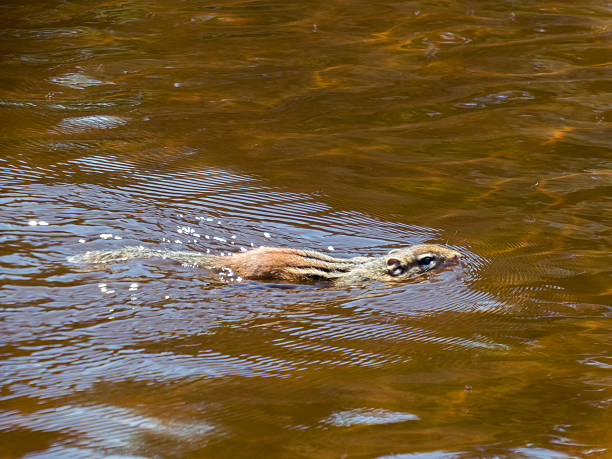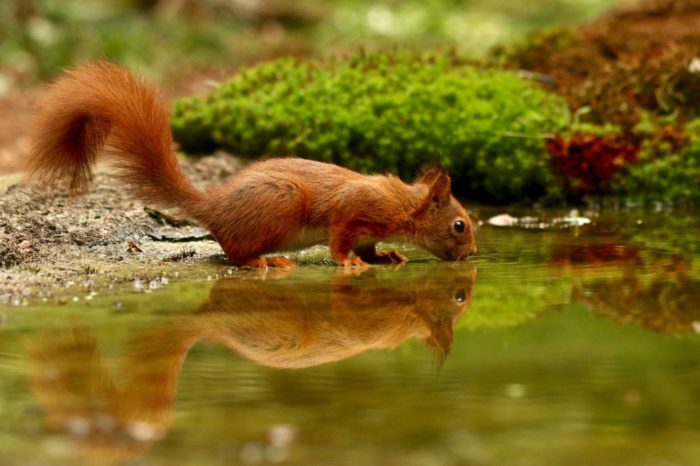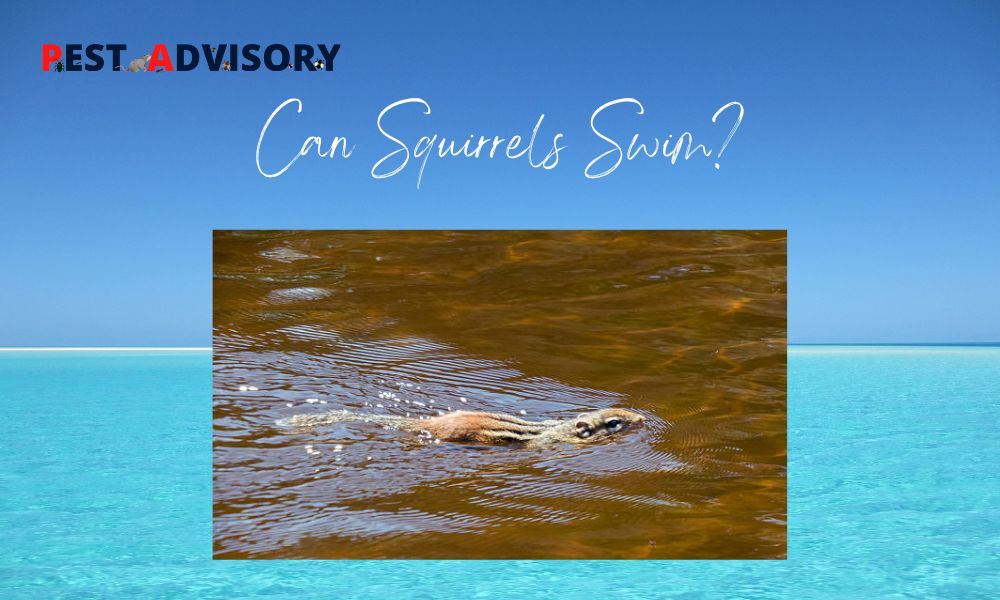The squirrels in your garden have increased. Now you fear that they might create a mess in the pristine water of your beloved pool.
You wonder, can squirrels swim? Will they drown? What damage can they cause? Well, your concerns are not uncommon.
In this article, we will reveal some facts regarding squirrels, their swimming habits, and how to deal with squirrels in your pool. To understand it all, read ahead!
Squirrels and Water
The small size of the squirrel makes them vulnerable in many ways. One of them is the risk of hypothermia and eventual death.
They do not have any particular water-retentive coat. They are just covered in light fur. When wet, their core temperature falls rapidly. This rapid drop is associated with their size.
The drop is so sudden and immediate, that it becomes difficult for them to regulate or get their normal temperature back.
Can Squirrels swim
Yes, squirrels can swim! In fact, they are quite good at it. While they may not be able to swim long distances, they are able to stay afloat and move through the water with ease. This is because their bodies are buoyant and their fur helps to keep them warm.
Why Do Squirrels Swim?
So you might wonder that if these rodents hate water so much why can some of them be seen swimming? Well. The answer is situational demands.
Swimming is not a recreational activity for squirrels. They swim because they need to.
Sometimes due to terrestrial threats, squirrels take the water route to go in search of food and shelter.
How Do Squirrels Swim?
The technique of swimming and speed depends on the type and age of squirrels.
Flying squirrels cannot swim at all. They have the highest chance of dying from water.
Skiing squirrels are the only types of squirrels who love the water. They are natural swimmers who practically glide through the water rapidly.
The most common squirrels seen, the gray and red squirrels are average swimmers. They swim only when in dire need. Their typical swimming technique is dog-paddling style.
In this, they submerge almost all of their bodies underwater, only the tip of their face is seen above through which they breathe, also 1/3rd of their body is visible. They use their legs underwater in a paddling way which makes them move forward.
But again because of their size and weight which gets heavier with the wet fur the process of trying to carry their body forward in water are difficult.
Their swimming pace is slow and if they try to go fast, they will be out of breath in no time.
Squirrels can swim underwater too. But for a shorter amount of time. They use this time to come up so that they are partially submerged.
But if a squirrel falls from a great height into the water, then because of the depth it sinks too deep and it is difficult for it to come up. They require a huge lot of strength and strong lungs to lift their wet body.

Can Squirrels drown
Yes, squirrels can drown. They are small animals with high metabolisms and they can get tired quickly when swimming. If they are not able to get out of the water, they will eventually drown.
How Far can Squirrels Swim
It is possible for squirrels to swim, however, they are not strong swimmers. They typically only swim when they have to and will not swim for recreation. If a squirrel finds itself in water that is too deep for it to stand in, it will start to swim using its front paws to paddle and its hind legs to kick. It can cover a short distance this way, but it tires quickly.
How Fast can Squirrels Swim
Squirrels are good swimmers and can swim quite fast when they need to. In general, squirrels can swim at a speed of about 2 miles per hour.
Can Squirrels Swim underwater?
Yes, squirrels can swim underwater. They are able to hold their breath for up to four minutes at a time and can cover distances of up to 100 yards (91 meters) in a single swim. Interestingly, their hind legs are much better adapted for swimming than their front legs, which they use primarily for walking and climbing.
Which Type of Squirrels are the Best Swimmers?
There are three types of squirrels that are known to be good swimmers: the Eurasian red squirrel, the American red squirrel, and the Eastern gray squirrel. All three of these squirrels have been known to swim across ponds and lakes in order to reach their destination.
The Eurasian red squirrel is the best swimmer out of the three, as it has been known to swim up to half a kilometer at a time. The American red squirrel is also a good swimmer, but not as good as the Eurasian red squirrel. The gray squirrel is the least good swimmer out of the three, but it can still swim across small bodies of water.
How to Deal with Squirrels in Your Pool?
In normal cases, your swimming pool is safest from squirrel infestation. But sometimes due to sheer dumb luck (yours as well as the squirrel’s), they might fall into your pool. Oops!
Trust me, even the critters find it disgusting. So if you do see a squirrel struggling in your pool try to follow the steps:
- Unless they have fallen from very high there are chances it will survive. And if you can see them in the water, that means they are just stalling and when you leave they will swim to the shore.
- For particularly skittish squirrels, you can keep nuts and seed treats around on the bank. This is an additional allure for them to make them get out faster.
- If you see a squirrel struggling in the water and unable to swim, wear a pair of thick gloves and only then try to handle them.
- If you find an already dead squirrel, do not touch it with bare hands, use gloves. Better yet, use a long-handled net to lift the corpse and then bury it properly. Open dead bodies of creatures can spread harmful diseases in the neighborhood.

Precautions
- Do not try to handle a squirrel that is just floating in your pool
- Always wear gloves when touching these rodents
- When picking up the dead squirrel off your pool make sure to hold it far from your body and prevent it from touching any part.
Final Words
The best way to keep squirrels out of the pool area is to keep it plant-free. Especially pools should never be built near tall trees with long branches. So if your pool is indoors or somewhere far from trees, then it is pretty much safe from squirrels as squirrels will avoid water unless necessary.
Hope this article could alleviate your concerns!
